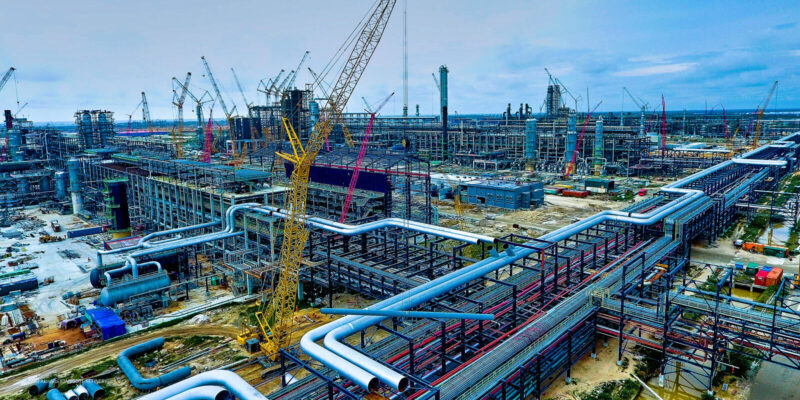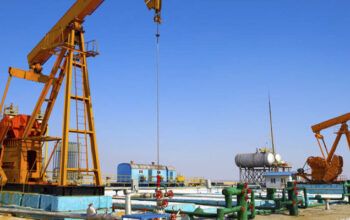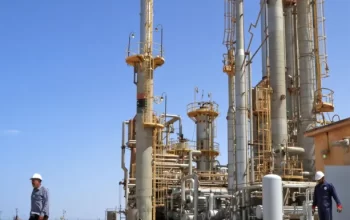An executive from Dangote Refinery has accused major oil companies of hindering access to local crude by either overpricing it or claiming it’s unavailable. This situation has compelled the refinery to rely heavily on costly imports.
The refinery, which represents a $20 billion investment and is set to become the largest in Africa and Europe upon reaching full capacity, commenced production in January.
However, it has encountered difficulties in securing sufficient crude oil to meet its daily capacity of 650,000 barrels.
Reports from oil traders indicate that the refinery is currently importing approximately 10 crude oil cargoes each month.
In efforts to mitigate this shortfall, in May, the refinery issued tenders for the purchase of two million barrels of West Texas Intermediate (WTI) Midland crude per month, starting in July and continuing for a year, according to Reuters.
Devakumar Edwin, an executive at Dangote Refinery, expressed frustration, stating, “Either the oil majors are deliberately demanding exorbitant premiums or asserting that crude is unavailable.”
Edwin disclosed that the refinery has been forced to pay $6 above market prices, resulting in reduced output and increased dependence on imported crude, primarily sourced from countries such as the United States.
This has significantly inflated production costs for the refinery. The Oil Producers Trade Section (OPTS), representing oil producers in Nigeria, has not yet responded to these allegations.
Under guidelines issued by the Nigerian Upstream Petroleum Regulatory Commission (NUPRC) last December, the Dangote refinery was slated to receive 325,000 barrels per day from domestic oil producers as part of its crude supply obligation. However, local oil producers have struggled to fulfill this quota.
Following Nigeria’s 2021 oil industry legislation, which established the NUPRC for exploration and the Nigeria Midstream and Downstream Petroleum Regulatory Authority (NMDPRA) for gas and downstream sectors, Edwin also criticized the NMDPRA.
He accused the authority of granting import licenses to fuel traders importing lower-quality fuels from Russia, while Dangote Refinery adapts to meet regional fuel standards.
Edwin emphasized that Nigeria’s decision to allow such imports has compelled Dangote Refinery to seek foreign markets.
He highlighted that the refinery has exported 3.5 billion liters of refined products, constituting 90% of its total production output.
![]()




